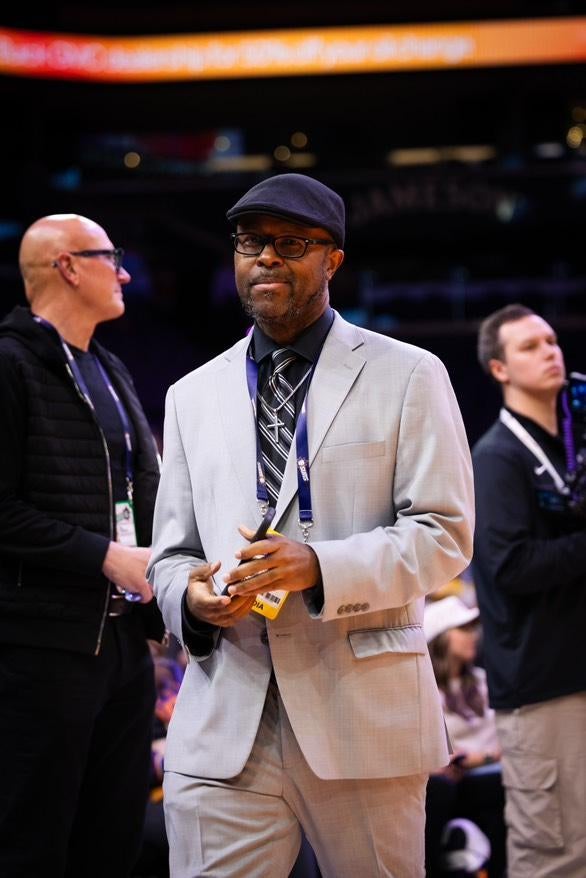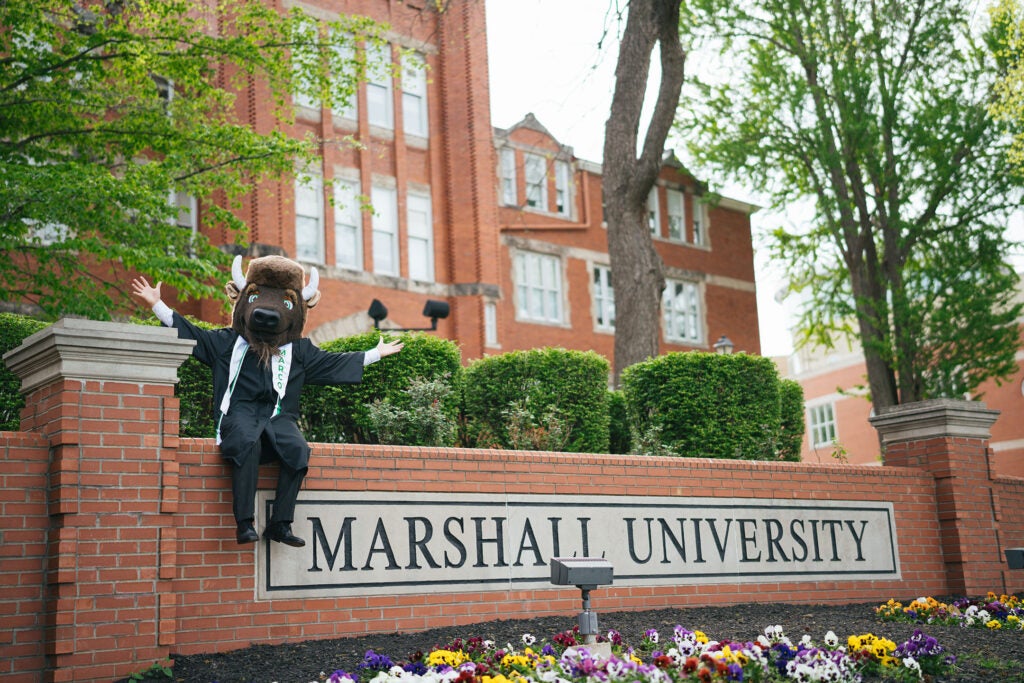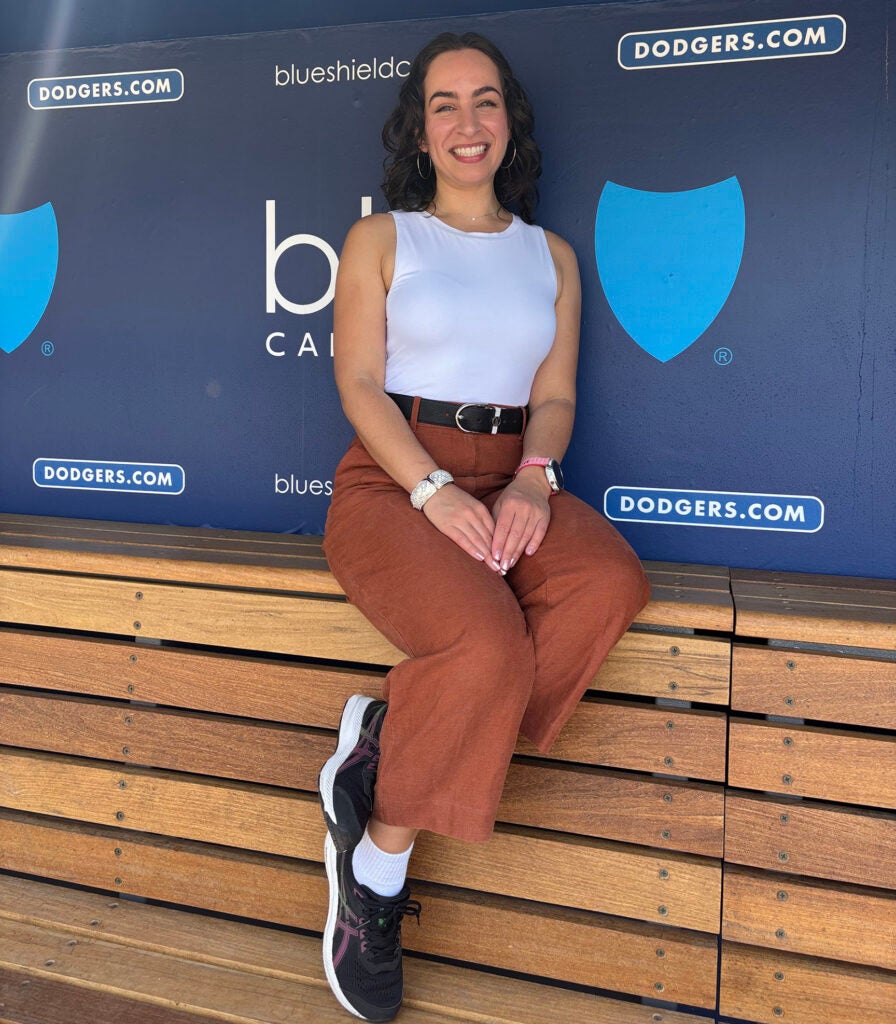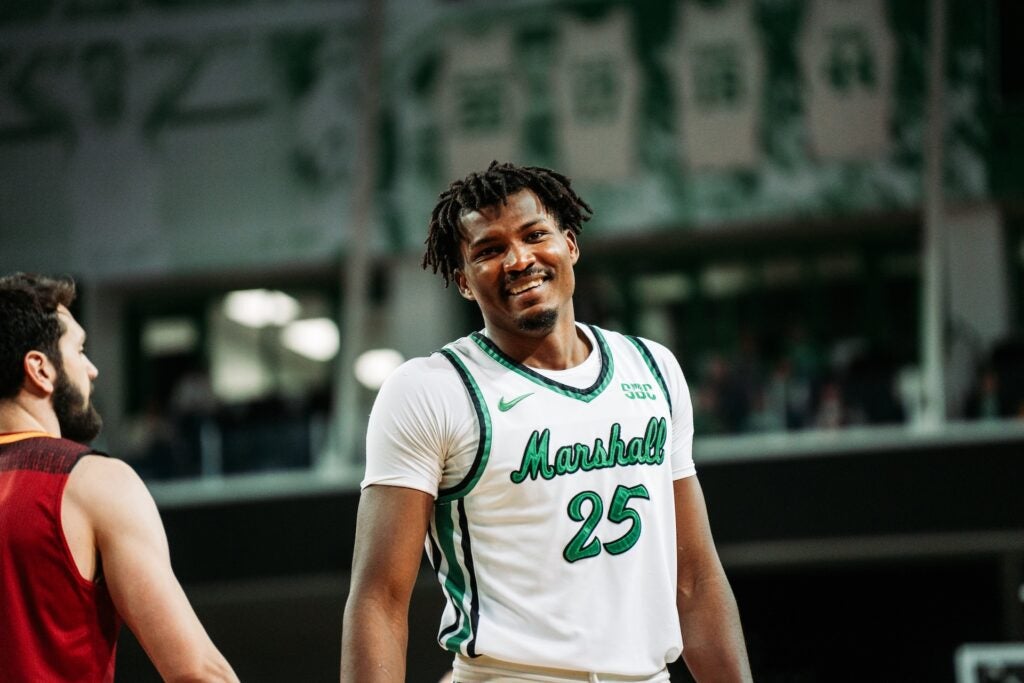It’s not a 100% guarantee, said Dr. Kelli Johnson, Marshall’s associate dean of Libraries, but in her experience, it’s usually worth a try. And when she combines that positivity with her knack for identifying the talents and strengths in the people around her, it’s a powerful tool for generating good ideas to improve the university, community and life for future generations.
“The worst that can happen is they say no,” said Johnson, who has contributed to Marshall and the surrounding community in a variety of ways — from increasing and improving the free services available through the libraries to serving as a co-founder of the President’s Commission on Diversity, Equity and Inclusion, to collecting and preserving oral histories in the Fairfield Neighborhood of Huntington, and many others.
That can-do spirit, her commitment to creating solutions, and her enthusiasm for recognizing the amazing contributions of the beautifully diverse people she encounters are among the many reasons to celebrate Johnson and others serving the same missions this Black History Month.
For Johnson, celebrating multiculturalism is a natural thing to do. That spirit of diversity, of embracing both differences as well as commonalities of the people who touch history and lives, is a quality that Johnson brought with her to the Huntington area when she arrived in 1999, a single mother at the time, hopping off the Amtrak train with her two young daughters to live in her father’s hometown.
She was born and raised in San Francisco amidst so much multiculturalism — in her own family, in her community and her school —that she didn’t even realize it was there. Her mother, Linda, was a nurse. She was white, the granddaughter of German immigrants who had settled in Iowa. Her father, Marvin, was a bus driver. He was black, raised in Proctorville, Ohio, and in the 1960s when he met her mother at a San Francisco YMCA, had recently gotten out of the military.
Her babysitter served her curry and rice and ate without cutlery. And her grade school — the French American Bilingual School, as it was called at the time — introduced her to yet another culture.
It was a stretch to attend a pricey, bilingual school, but her dad lived by that same “might-as-well-ask” mentality that he passed along to his daughter. He had been driving his bus by the school each day and observed how the students wore uniforms and always looked orderly. He liked that.
“So, my parents, who were a bus driver and a nurse, thought, ‘You’re going to go to that fancy private school,’” Johnson said. “And they marched in and were like, ‘We want our kid to go here, but we don’t have any money.’ I think they talked to me and decided I could meet their criteria, and I think I had a scholarship the whole time I was there.”
She went on to attend an academically challenging high school, Lowell High School, and then went through a series of jobs in San Franscisco. Eventually, as a single mom with a 9- and a 4-year-old, she decided to follow her dad’s advice when he suggested she and her girls move back to his hometown, where he had moved some years before. So, they took the Amtrak across the country and settled in Proctorville.
Then it was a matter of getting on her feet.
“I enrolled in Marshall, and they said, ‘Hey do you want to do this thing called ‘work study?’” Johnson recalled. “They put me in the library as a work study student. And I never looked back.”
She had found her place.
“Being a librarian is about making sure that everybody — everybody, regardless — has the best possible information that they need to make the best possible choices or be entertained or whatever it is,” she said. “That’s what I love about being a librarian — helping people.”
In the digital age, librarians are as important as ever, she said.
“There is so much information coming at people so fast and in so many ways. It’s hard to know what is trustworthy,” she said. “We go to school to help people find the best information.”
As associate dean of Libraries, one of her roles is to set the tone for the public face of the library and remind the campus community of how much the library can help.
“This building is open more than any other building on campus,” Johnson said. “This building was not built to just be quiet and filled with books. We help you with the research and your studying and all that, but we do other things too.”
Along with tapping into the talent to help create even better services for the libraries, Johnson has taken on another role — preserving the stories of those whose talents have contributed to the betterment of the community. A National Park Service grant helped Johnson record and publish oral histories of people in the Huntington community in a project titled, “African Americans in Appalachia during the Civil Rights Era.”
“That’s been fascinating, and there are other oral histories I’ve done before with a Humanities Council grant, and there are some articles we wrote about some local places, and all of that is on Marshall Digital Scholar and is freely available,” Johnson said. “The important thing is you don’t have to be a big, fancy person to do it.”
The city of Huntington and many of its citizens are doing a great job of recording local Black history for present and future generations, she said.
“There are so many people with the same goal in mind — let’s preserve this rich history,” she said. “I just think it’s important for people to know about the amazing people, places and things in history. There are so many lessons we can learn from history.”





